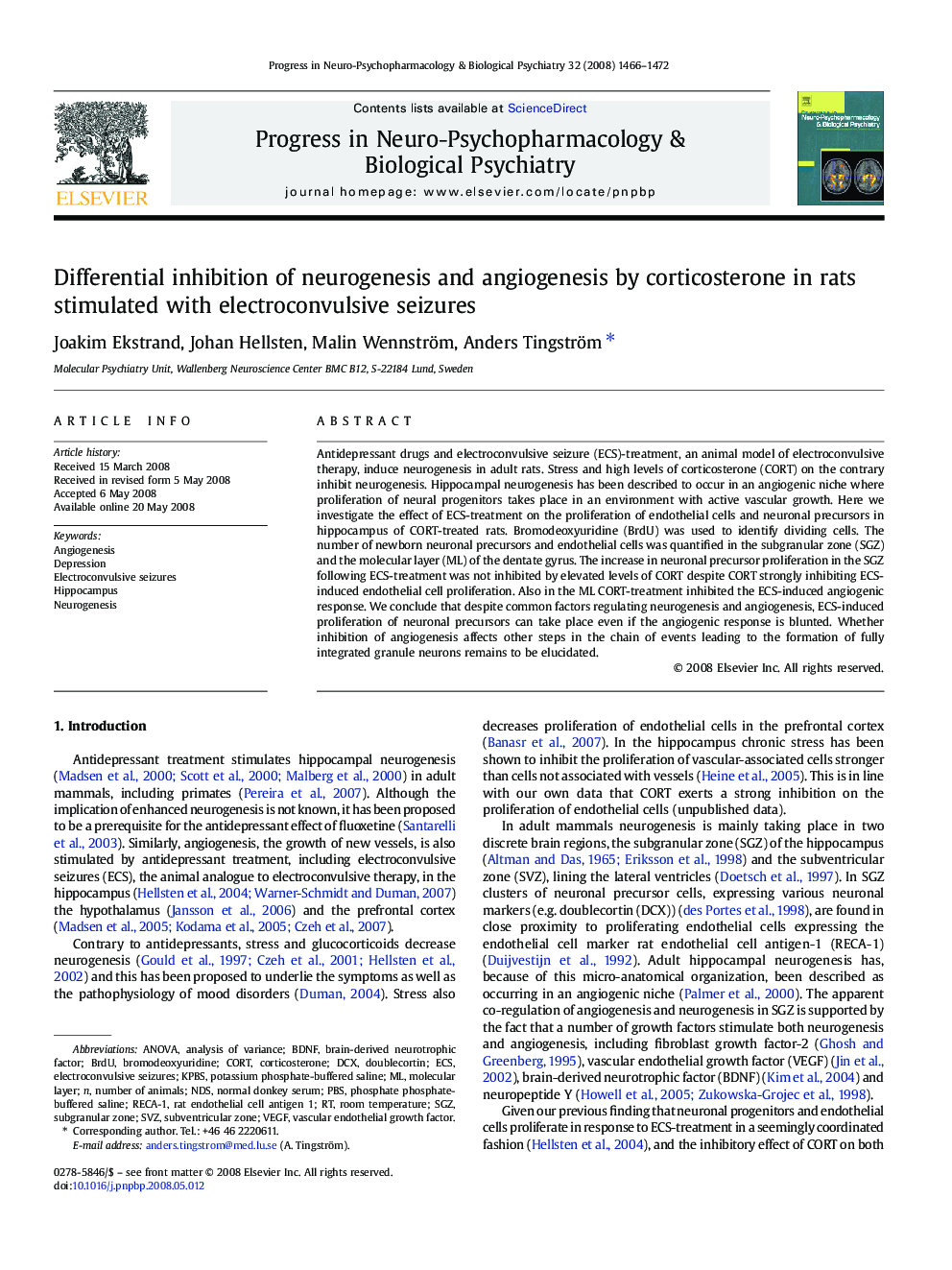| Article ID | Journal | Published Year | Pages | File Type |
|---|---|---|---|---|
| 2565614 | Progress in Neuro-Psychopharmacology and Biological Psychiatry | 2008 | 7 Pages |
Antidepressant drugs and electroconvulsive seizure (ECS)-treatment, an animal model of electroconvulsive therapy, induce neurogenesis in adult rats. Stress and high levels of corticosterone (CORT) on the contrary inhibit neurogenesis. Hippocampal neurogenesis has been described to occur in an angiogenic niche where proliferation of neural progenitors takes place in an environment with active vascular growth. Here we investigate the effect of ECS-treatment on the proliferation of endothelial cells and neuronal precursors in hippocampus of CORT-treated rats. Bromodeoxyuridine (BrdU) was used to identify dividing cells. The number of newborn neuronal precursors and endothelial cells was quantified in the subgranular zone (SGZ) and the molecular layer (ML) of the dentate gyrus. The increase in neuronal precursor proliferation in the SGZ following ECS-treatment was not inhibited by elevated levels of CORT despite CORT strongly inhibiting ECS-induced endothelial cell proliferation. Also in the ML CORT-treatment inhibited the ECS-induced angiogenic response. We conclude that despite common factors regulating neurogenesis and angiogenesis, ECS-induced proliferation of neuronal precursors can take place even if the angiogenic response is blunted. Whether inhibition of angiogenesis affects other steps in the chain of events leading to the formation of fully integrated granule neurons remains to be elucidated.
